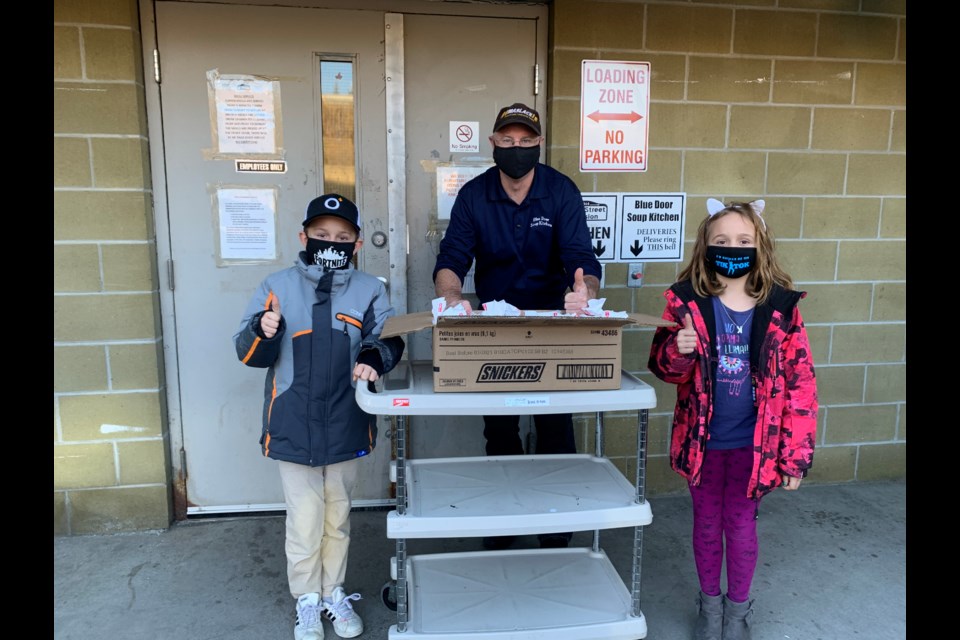The road to success is often filled with bumps, twists and turns, and that couldn’t be more true for a Sudbury small-business owner who has done so well for himself, he now needs to find a new facility that meets more demanding legislation.
Shawn Scott is the owner and operator of Local Jerky Plus, a home-based operation out of the Sudbury bedroom community of Copper Cliff. The business has only been around for about a year, but has managed to take a bite out of the competition, to the point Scott has encountered some unexpected challenges that resulted in his business being shut down.
When he first set up shop in his home, Scott’s intention was to sell his beef jerky at local events, directly from his shop to the mouths of hungry customers. Of course, he always had an eye on expansion, but he said he did not realize that would require an entirely new facility.
Selling his product directly to the consumer for immediate consumption qualified him for an exemption from more stringent regulations under the Ontario Ministry of Agriculture, Food and Rural Affairs (OMAFRA).
Cynthia Peacock-Rocca, manager of health protection at Public Health Sudbury and Districts, said when Local Jerky Plus first opened, Scott sold his product at events, directly to the consumer.
“When you’re looking at the manufacturing of meats, in this case, beef jerky, it could fall to the health unit to do the site inspection, or it could fall to OMAFRA,” Peacock-Rocca said.
“If you are able to prove that 50 per cent of your business or more was selling the product directly to the public for immediate consumption, then you stay with the health unit for inspection. (Scott) was subject to our food premise regulation with the caveat that, if his business model changed, or if he sought an increase in wholesale sales, he may not fall to the local health unit any more.”
That’s exactly what has transpired. Having his product in 90 stores, with contracts with some big businesses, Scott said he was caught off guard when OMAFRA advised him he needed to cease operations and make significant changes if he wanted to get back up and running.
On Oct. 13, OMAFRA sent Scott a letter following an inspection on June 29 advising him that business activity associated with his food service premises (where he makes his beef jerky) accounted for 36 per cent of the total sales for the fiscal period ending Dec. 31, 2019. As such, Local Jerky Plus no longer meets the requirements for an exemption and Scott requires a licence under the Food Safety and Quality Act.
“Without it, you’re in contravention of the legislation and not supposed to be producing,” said Peacock-Rocca.
“I started this business with blood, sweat and tears,” Scott said. “OMAFRA is working with me in a quick time frame to get the certification, and to meet criteria for Meat and Poultry Ontario, as well. The progress is great.”
Want to read more stories about business in the North? Subscribe to our newsletter.
For the past few weeks, Scott has been busy trying to find a solution. Now, he’s looking at leasing a facility and renovating it to meet his needs and the requirements of OMAFRA. He said he found an investor who will not only help him get back up and running, but will help him increase production.
“It has taken a lot of work to get to where I am,” he said. “With 90 stores currently, I am excited to be able to produce for up to around 200 stores and continue to expand all over Canada and then hopefully obtain federal licences afterwards to go worldwide.”
“Soon I will have my facility and one enormous thanks to the individual who invested in me and had belief that this product is something big.”
He said he has signed a contract with the owner of two local Mobil gas stations to sell his beef jerky there. He said sales records show he is outselling his competitor eight to one, and that he has “diminished a multi-billion-dollar company in sales, and I will continue to grow.”
While Scott is working to get a new facility up and running, he has been keeping up with his desire to help the community by donating tubes of beef and boxes of Hamburger Helper to the Blue Door Soup Kitchen to help feed the homeless. He also plans to use his current facility to make and deliver nachos directly to the homeless.
“As I continue to grow my company, I will continue to help others in need,” he said.
Every year, Scott puts on an ice-fishing derby called Fishing for the Cure. The annual ice fishing derby was introduced in 2014 in support of Noah Borgogelli, who was diagnosed with acute myeloid leukemia six months into his short life. Following his passing in 2018 at the age of four, the event adopted Northern Ontario Families of Children with Cancer (NOFCC) as its annual beneficiary.
Scott is busily preparing for the event’s return.
– Sudbury.com




